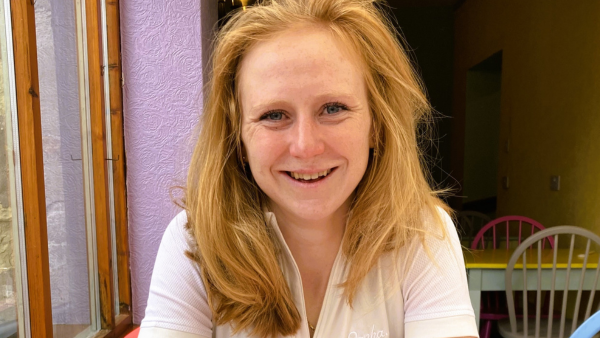In previous blogs I’ve outlined how we’re changing to ensure Fellows are more involved in helping us achieve our aims. The results have been extremely positive - better ideas, high quality outputs, improved impact. Could what we have learnt be applied to public policy, and the NHS in particular?
We’ve spent the last year or so opening up our projects, ensuring that our Fellows are involved from our initial thinking to ensuring what we do has maximum reach and impact. From small initiatives such as Fellows commenting on our reports to larger ones such as our heritage network we’ve learnt a lot about what works, from both Fellows’ perspectives as well as our own. We still have further to go, but some of the lessons are:
- Involve people early. Even if you have little to say initially, it’s best to warm people up and let them know something will be on its way
- If you can’t include everyone don’t try to. With limited resources it’s better to spend time ensuring an appropriate group can be involved properly rather than a large number you can’t handle
- People will always surprise you with their initiative, creativity and willingness to help
- Respect that people are busy and therefore only engage when it can really add to the impact of the work, rather than doing it for its own sake
- Even if people don’t agree with your decisions and actions, if you’ve taken time to ask them and been transparent in your decisions and why you’ve taken them, they will understand you’ve had to make difficult trade-offs.
For our Innovative Education work, we’re growing a network of Governors and school leaders who drive creative improvement and innovation in schools. With limited resources we’ve decided to focus on schools themselves, where our network is proving invaluable in developing our thinking and bringing about change on the ground. Working with people in this way is about trusting them rather than imposing our own ideas and expecting people to agree.
This is something that Governments find hard to do. Used to deciding policy and then implementing it, the top down mentality is difficult to change, despite successive governments claiming they will do so. For example co-production is still in the margins despite well over a decade of projects demonstrating its benefits.
An obvious criticism is that it is easy for an organisation like the RSA to involve people in this way but too simplistic for something as difficult as large scale policy development and implementation. However there have been cases where this kind of approach has been applied successfully by public bodies.
Take the example of Merton Council when they, like all other councils, were making difficult decisions about cuts to their support for the voluntary and community sector. Most councils made this decision behind closed doors, announced what would happen, and then donned their tin hat hoping the inevitable backlash in the local press would wash over as quickly as possible.
Merton took a different approach, outlining the problem to their local voluntary and community sector and inviting responses. From this they elected to set up a panel to decide on the reductions to local VCS funding which included people from both the council and the VCS. The situation was clear, the decision making was transparent and people were kept informed, all while ensuring the bureaucracy involved was very light. Of course there were still a few disgruntled people, but the feeling amongst the sector was far more positive than in other parts of the country. (It was a great idea that I haven’t seen replicated elsewhere - I’ve blogged before about the lack of replicability of good ideas).
This kind of approach could be used effectively in many areas of public policy. Take the current NHS situation, while the arguments continue about the merits of austerity, almost all agree that with an aging population, healthcare costs more generally rising and expensive new treatments, funding is going to be heavily squeezed in the NHS, ring-fenced budget or not. The Government approach has managed to alienate most NHS staff and created a them-and-us situation, with everyone fighting for their bit of the NHS and junior doctors currently being balloted for strike action.
Here’s an outline of an alternative model for how the Government could decide what to do about the NHS:
- Outline the financial and other challenges the NHS faces into the future, along with some of the boundaries for possible options – not through a long consultation document, instead through an easy to find and use website that’s widely publicised.
- Spend time gathering feedback from a range of groups, both NHS employees but also patients and the public more widely.
- Disseminate the feedback widely in an easily digestible form so that everyone can see the possible solutions offered, the preferences of the public, and what the experts suggest.
- Form a panel consisting of the Minister and a range of other stakeholders who are brought together to openly decide the way forward
While not radically different to a consultation, improving how the consultation is carried out and adding the step of a panel openly deciding the way forward would immediately take the heat off government. The decisions made would almost certainly be better. It would have more support from those inside and outside the NHS. It would increase understanding of the difficult trade-offs faced. Finally it is likely to produce a whole range of spin-off benefits from showcasing great local initiatives to sparking new conversations.
The downside for the Government is that they would have to give up some power and put themselves into the hands of a wider group of decision-makers, something they never find easy to do. However, given the difficult position they are in on the NHS, perhaps they should embrace this approach, they may be pleasantly surprised.
Related articles
-
Rachel Drapper: Featured Fellow Q&A
Rachel Drapper
Rachel Drapper, CEO and founder of Fairshare, discusses domestic labour inequity, gender roles and the way forward for those in our community who are striving for equity inside and outside the home.
-
RSA Fellows making an impact in the LGBTQ+ community
Maeve Devers Kirby Fullerton
Learn about just a handful of RSA Fellows doing innovative work to bring about social change in the LGBTQ+ community.
-
Comment at the RSA: coming full Circle
Mike Thatcher
The RSA has launched a Comment 'space' on its Circle community platform as it moves to a Circle-first approach for comment articles authored by Fellows.




Join the discussion
Comments
Please login to post a comment or reply
Don't have an account? Click here to register.
I have worked for the NYC Mayor's Office for almost 10 years, and my first job in government in 2006 was as the Manhattan Director of Community Affairs. We have a Community Affairs Unit whose entire job is to do bullet #2. We also now have something called the Public Engagement Unit, that does targeted grassroots contact about issues that are important to the administration. In addition, each NYC agency has a community affairs and intergovernmental group to disseminate their information and policies, and to gather feedback in forums such as charettes, etc. We do tele-town halls, live town halls, visit community board meetings, and whatever else we have to do in person to engage. Depending on electronic means only is a mistake - you have to get into the communities. I was also in charge of the Second Avenue Subway [the NYC 'Crossrail', so to speak] as well as the Barclay Center arena in Brooklyn both before and right after it opened, and I knew immediately the importance of the public/community engagement portion to the success of the overall project. Policy makers ignore this at their peril.
Lolita Jackson
I don't know much about NYC Mayor's Office but had heard it was doing some interesting work in this area, so it's good to hear more. The challenge is bullet point 4, which seems much rarer.
You raise some important points Oliver. Genuine consultation and engagement with respect to the NHS and several other local and global challenges is critical. As you say, ceding control is often very challenging, not only for governments, but also for funders...
Over the years, I've learned that there is a strong connection between inner transformation and outer transformation. For example, it is the inner transformation that will enable more to let go of the need to control, and instead to be ready to consult, engage, and even co-create.
Perhaps it is time to invest in inner transformation alongside investments that seek to realize outer transformation in the world.
Hi Oliver because we still have the old linear systems and economy this is a huge problem because the poor are being unfairly and exponentially punished by those in power - is it deliberate to reinforce status quo?- poverty stricken people have a great deal to input here but that is the catch22, precisely because they have no money and are in an exhaustive struggle just to remain poor, fed and warm. Many thinks need changing all at once but those with power hate this but it is essential for more creative input from those effected. Learning from 'The DIF' we urgently need some form of 'The BIEN' model of Basic Income in order to be more inclusive. This also neatly segways into your request for ideas on mental health issues in society: I am very, very afraid that as we have a 'homicidal' level of exclusion, unfairness and inequality that we are making matters so much worse by labelling a natural, normal human response to such inequities as an individual mental health problem. This is once again an exclusive mode of behaviour and a labelling/ scapegoating one. Undoubtedly there are those with mental health issues but it is my theory that a large part of our so called mental health problems is the 'punishment' of those with a normal human response to being abused so badly by the system. Governments national,local, civil servants and businesses need to be held to account. We have 'gangs' of poor and irrational thinkers in charge of policies and operations. I am optimistic enough to believe that this is because of a lack of time or education and therefore fixable. I do hope so. We have to stop punishing others for our inadequacies but there that is what the horror story 'Frankenstein' was a warning about.
Thanks for your thoughts Susan, there's a lot there, but one point which may be of interest to you is that we're bringing out a paper about basic income in a couple of weeks - do look out of it.
thanks,
Oli
Have you seen what NHS Citizen are doing in this area. They have a good pathway from people discussing their issues, putting forward their ideas...all the way to the NHS Board discussing their merits.
Hi Noel,
Yes, NHS Citizen is good, and it's led I believe by Olivia Butterworth who is great. I wonder though what proportion of the population knows about it (do you know?), and what real influence it has (though I'm sure the NHS would claim it has a lot). A lot of public bodies have these kinds of citizen forums now - I used to work for one that had its own version - and they are far less tokenistic than they were. However it seems there is still a long way to go to get the kind of change I describe in my blog. For me the key is the open panel to decide the way forward, which would create real transparency.
thanks,
Oli
I don't know what percentage of the population it targets, but I think they've invested more than other forums in that pathway approach, which isn't just a workshop or online discussion, but a series of blended methods that play to people's different communication styles. I agree though that the key is how much or well it influences wider NHS decision making.